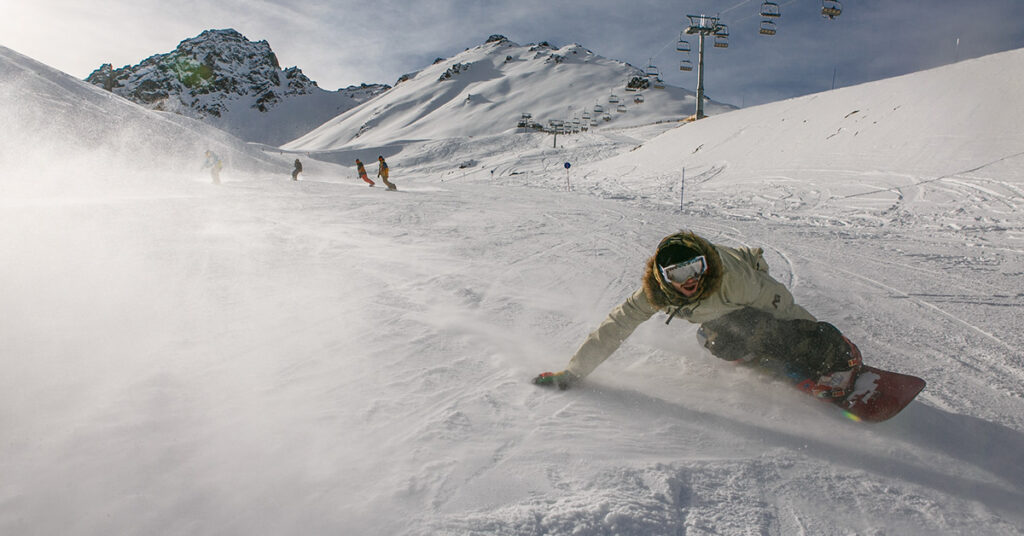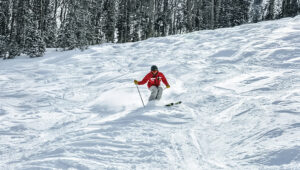Whether you’re carving down steep runs or cruising through fresh powder, skiing demands a lot from your body. Your muscles are engaged through your whole body and your brain is constantly processing terrain changes. To keep up with that kind of full-body effort, what you eat—and when—makes a big difference.
As a strength and injury-prevention specialist, I’ve seen firsthand how nutrition plays a role in performance, endurance, and even recovery. So if you’re headed to the mountains this season, here are a few simple but effective nutrition tips to help you feel strong and energized from first chair to last run.
1. Start With a Solid Breakfast
Skiing is a full-body workout that lasts for hours. You wouldn’t go on a long hike without food in your tank—and the slopes are no different. Before you clip into your skis, fuel up with a breakfast that includes:
- Complex carbs for lasting energy (think oatmeal, whole grain toast, or fruit)
- Protein to stabilize your blood sugar and support muscle function (eggs, Greek yogurt, protein smoothies)
- Healthy fats like avocado or nuts for sustained fuel
Skip the sugary pastries or just coffee—those lead to quick crashes, not strong skiing.
2. Hydration is Easy to Forget—Don’t
Cold weather can trick you into thinking you’re not sweating or dehydrating. But skiing is a high-altitude, high-output activity, and staying hydrated is key for muscle function and focus.
- Sip water regularly throughout the day
- Consider a hydration pack or water bottle in your backpack
- Add electrolytes if you’re skiing for extended hours or at high elevations
Pro tip: Avoid too much caffeine or alcohol—they act as diuretics and can dehydrate you faster than you think.
3. Smart Snacks On-the-Go
Energy dips can lead to sluggish skiing or even injury, especially if your reaction time slows. Keep a few easy-to-digest, nutrient-dense snacks available:
- Trail mix or nuts
- Energy bars (watch for low sugar and high protein)
- Dried fruit or a banana
- Nut butter packets
Aim to snack every 1-2 hours if you’re skiing or working a full day.
4. Après-Ski Recovery Counts
After a big day on the mountain, your muscles are depleted and your body is ready to rebuild. A balanced post-ski meal can help reduce soreness and support recovery so you’re ready for day two.
Look for meals that combine:
- Lean protein (chicken, salmon, tofu)
- Healthy carbs (sweet potatoes, brown rice, quinoa)
- Colorful veggies for antioxidants and nutrients
And yes, rehydrate! A warm herbal tea or electrolyte drink can go a long way.
5. What to Avoid
Not all “mountain food” supports peak performance. Here’s what I recommend limiting when you’re trying to ski your best:
- Heavy fried foods – they slow digestion and can make you feel sluggish
- Sugary snacks – they spike blood sugar and crash your energy
- Alcohol – it dehydrates, slows reflexes, and interferes with sleep and recovery
Of course, enjoy your trip! But if you want to stay strong and feel good all week, balance is key.
Final Thoughts
Skiing is as much a test of endurance as it is skill, and the fuel you put in your body matters. The goal isn’t to be perfect—it’s to be intentional. Making just a few better choices throughout your ski day can improve how you feel on the mountain, reduce your risk of injury, and keep your energy high.
Stay strong, stay smart, and most of all—enjoy the ride.



